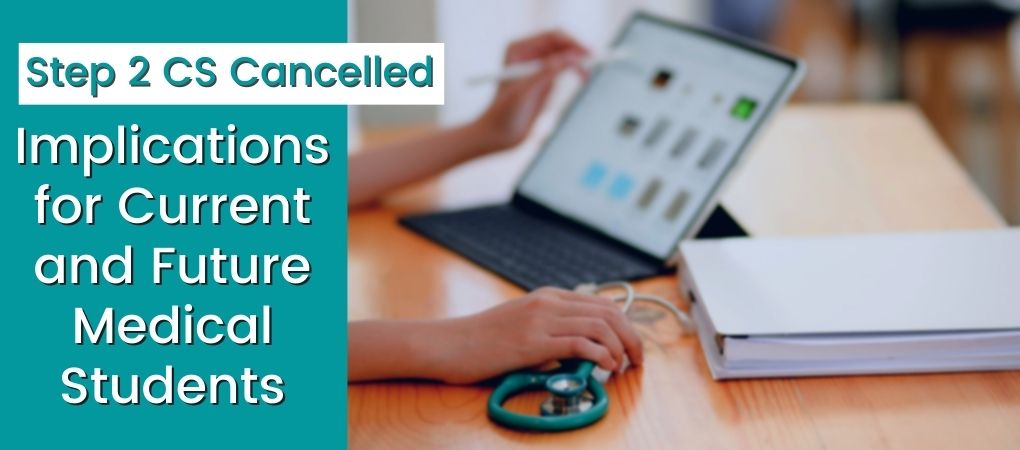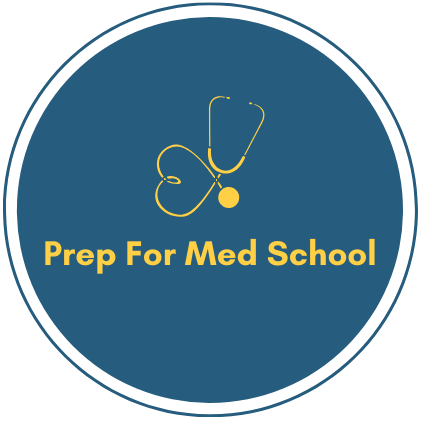Step 2 CS Cancelled – Implications for Current and Future Medical Students

Recently, the Federation of State Medical Boards (FSMB) has made a significant change that has been pondered for years – the permanent cancellation of Step 2 – Clinical Skills (CS).
The medical school curriculum undergoes numerous changes over time. Some question what this means for residency admissions. How is your future going to change with the cancellation of Step 2 CS? Here are some thoughts from someone that took the exam not too long ago.
Step 2 CS Canceled = More money in the bank!
Everyone knows that medical school is expensive. Step 2 CS doesn’t help – the test was over $1000! And it is also only offered in 5 metropolis cities throughout the United States. Factoring in food, lodging, and airfare – the test was bordering on highway robbery.
Step 2 CS helps you with clinical differentials.
As an emergency medicine resident, using the physical exam to build your differentials is an invaluable skill. When I work alongside medical students on shift, it is one of the biggest deficits I see in third and fourth-year medical students.
Step 2 CS pushed you to sit down and understand what each physical exam maneuver meant, and what differentials lie downstream if the maneuver elicited positive or negative responses. One way to prepare yourself for residency in Step 2 CS’s absence is by going through this exercise:
- Consider a typical patient complaint, for example, chest pain.
- Ask yourself what differentials can chest pain encompass? The big mistake here is to focus on cardiology—but note there are many things in the chest that can present as chest pain.
- Cardiology: Myocardial infarction, angina, myocarditis, endocarditis, pericarditis
- Pulmonology: Pulmonary embolism, pneumonia, pneumothorax
- Gastrointestinal: Esophageal spasm, Gastro-esophageal reflux
- Musculoskeletal: Costochondritis
- Then, think of how certain physical exam presentations may support or negate pathologies. Chest wall tenderness would support costochondritis or something musculoskeletal in origin. Chest pain elicited by breathing suggests pathologies originating in the lung, like pneumonia or pulmonary embolism.
It also helps with your HPI, too.
HPI means your history of present illness. There is an art to writing a perfect HPI – you need to include all the pertinent information that convinces the grader of the diagnoses you are considering.
Note that one whole case is timed in Step 2 CS – the patient interview, physical exam, your note, along with lab/imaging orders must all be done at a specific time. Therefore, time management and organization were key to performing well on this exam.
The onus now lies on you and your medical school to develop a curriculum that offsets this deficit. The art of medicine is being able to perform a succinct history and physical, followed by a clear, concise written note. I foresee medical school curricula increasing the significance and time commitment of clinical skills practice for future years.
Step 2 CS teaches you to mind your manners.
There is always this running joke that Step 2 CS is to ensure international doctors applying for residency are able to converse proficiently. Albeit that is partially true, another thing that’s tested is your manners!
Small things like pulling out the step-stool for the patient to get up onto the exam table to draping the patient when not actively examining the patient is often overlooked. The exam will remind you to remember the humanistic side of the patient and to not treat them like a question that begs an answer (the diagnosis!) but to treat them with respect as well.
People fail Step 2 CS.
It is entirely possible to fail Step 2 CS, and I know a handful of individuals who have. Luckily, these individuals were not affected by their failure and were able to match successfully in their desired specialty. That being said though – on top of Step 1 being pass/fail, there are very few things now that differentiate one medical student from another.
Therefore, be prepared to be stellar in your class and to set yourself apart somehow. This includes things like making sure you are ahead of the curve in your class, and that you score stellarly on Step 2 CK (the only test that quantifies your performance – Step 1 being pass/fail as of recently, too!).
How do you feel about Step 2 CS being eradicated for good? Are you breathing a sigh of relief, or are you more nervous about the medical school process? Comment down below with your thoughts.

Leave a Reply